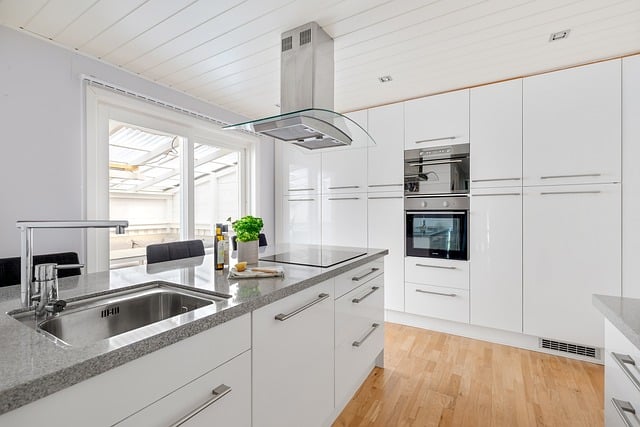Energy-efficient Home Improvement Solutions

Understanding Energy Efficiency Basics
Energy efficiency is about using less energy to achieve the same level of functionality in our daily activities. This concept is crucial in reducing electricity bills and minimizing the carbon footprint. Energy efficiency can be realized through simple measures like turning off lights when not in use, using energy-efficient appliances, and improving home insulation. Not only do these steps help conserve energy, but they also promote a healthier environment by reducing emissions. Homeowners can start by conducting an energy audit to identify areas needing improvement. This initial assessment can lead to substantial savings over time and enhance the property’s appeal. As awareness grows, integrating energy efficiency into everyday life is becoming more accessible and beneficial for both individuals and the planet.
Choosing Sustainable Building Materials
When planning renovations or building new structures, opting for sustainable building materials is a pivotal consideration. These materials often have a lower environmental impact compared to conventional options. For instance, bamboo, reclaimed wood, and recycled steel are known for their sustainability. Using such materials not only reduces resource depletion but also supports long-term environmental health. It’s essential to source these materials from reputable suppliers who adhere to eco-friendly practices. Additionally, sustainable materials often offer better indoor air quality, as they typically emit fewer volatile organic compounds. Moreover, they come with added benefits like improved durability and energy savings. Consumers are increasingly becoming aware of the environmental benefits of sustainable materials, making them a popular choice for modern, eco-friendly homes.
Insulating Your Home for Maximum Efficiency
Proper home insulation is paramount in achieving energy efficiency. It acts as a barrier to heat flow, maintaining a consistent temperature within your home, reducing the need for heating and cooling. Common insulation materials include fiberglass, foam, and cellulose, each offering varying levels of effectiveness and environmental impact. When selecting insulation, consider the R-value, which measures thermal resistance. Higher R-values denote greater insulating effectiveness. Proper installation is also critical, as any gaps or compression can drastically reduce performance. By investing in high-quality insulation, homeowners can enjoy lower energy bills, increased comfort, and a reduced carbon footprint. Energy-efficient homes not only benefit occupants by providing a stable indoor environment, they also enhance property value by emphasizing sustainability.
Upgrading to Energy-saving Appliances
Switching to energy-saving appliances is a cost-effective and straightforward way to enhance home energy efficiency. Modern appliances often feature advanced technologies designed to use less energy without compromising performance. Look for appliances with the Energy Star label, a mark indicating that they meet energy efficiency guidelines set by the U.S. Environmental Protection Agency. These appliances, from refrigerators and washing machines to dishwashers and ovens, contribute to significant energy savings over time. Additionally, some energy-efficient appliances offer smarter functionalities, like programmable settings and improved sensor technology, to optimize usage patterns. Upgrading appliances not only leads to reduced utility bills but also contributes to environmental conservation efforts by lowering household energy consumption.
Smart Lighting Solutions to Save Energy
Smart lighting technology offers an innovative approach to reducing energy consumption in homes. This modern solution includes LED lights, which are highly energy-efficient, consuming up to 80% less energy compared to traditional incandescent bulbs. Furthermore, smart lighting systems allow homeowners to control lighting remotely through apps or voice commands, ensuring lights are only used when necessary. Features like motion sensors and timers optimize energy usage, adding convenience while reducing costs. Additionally, adjusting the brightness and color temperature to match daylight can enhance well-being and productivity. As technology continues to advance, smart lighting becomes more accessible, offering an easy way for individuals to embrace energy efficiency while modernizing their living spaces.
Harnessing Solar Power for Your Home
Utilizing solar power is an excellent way to harness renewable energy and improve home efficiency. Solar panels convert sunlight directly into electricity, providing a sustainable and often cost-effective energy solution. Although the initial investment can be significant, the long-term savings on utility bills and potential tax incentives make solar power an attractive option. Before installation, assess your home’s solar potential, considering factors like roof orientation, shading, and community regulations. Many homeowners experience not only environmental benefits but also increased property value. Incorporating solar energy aligns with a commitment to sustainability, offering a reliable and clean power source that reduces dependence on fossil fuels and decreases carbon emissions.